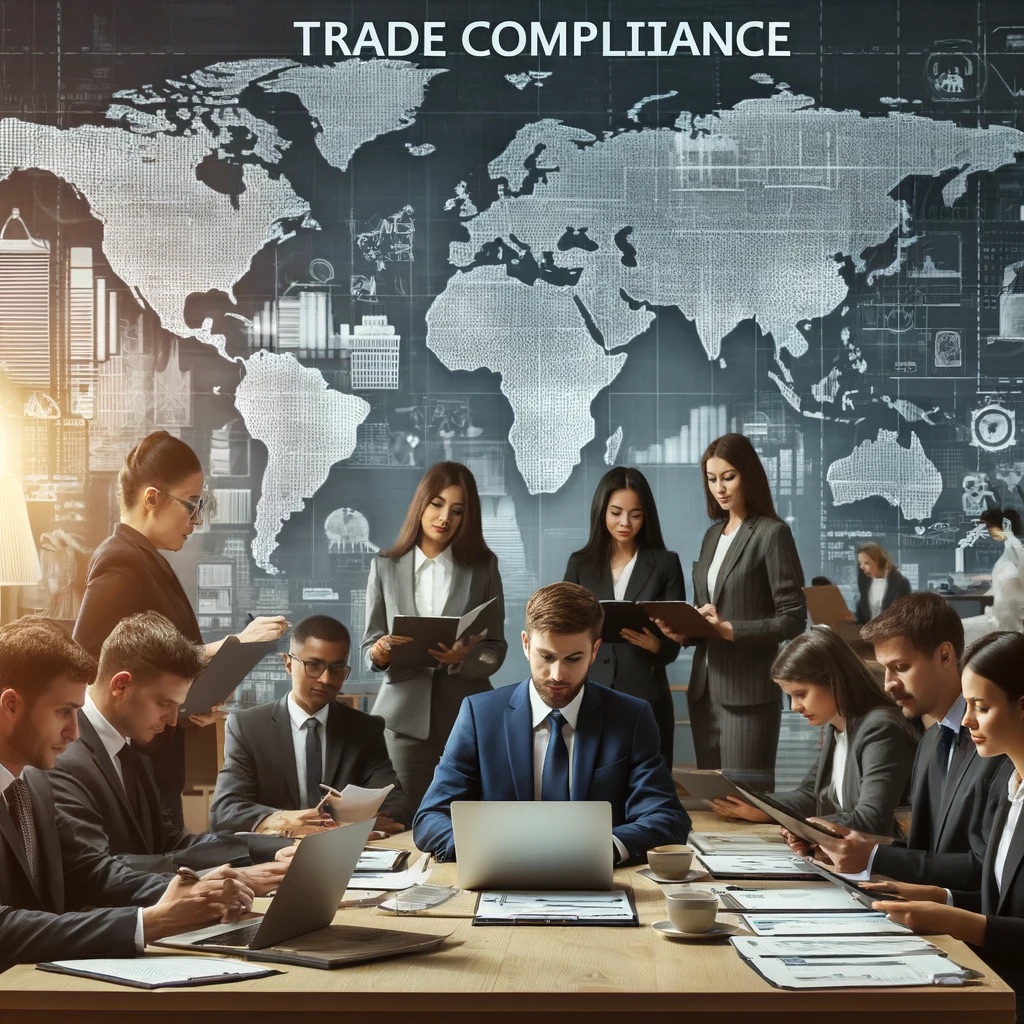Navigating Trade Compliance: Why Export Management Companies are Essential for Global Business
In the dynamic landscape of international trade, compliance with many regulations and standards is paramount. Businesses engaged in global commerce must navigate complex legal frameworks, which vary significantly from one region to another. Export Management Companies (EMCs) are crucial in ensuring businesses comply with these regulations, safeguarding their operations, and enhancing global competitiveness. This essay explores the essential role of EMCs in navigating trade compliance and highlights the significant benefits they provide to businesses.
The Complexity of Global Trade Compliance
Global trade compliance involves adhering to various laws and regulations that govern the import and export of goods. These regulations ensure national security, protect consumers and promote fair trade practices. However, the complexity of these rules can pose significant challenges for businesses, particularly those lacking in-house expertise.
EMCs specialize in managing trade compliance, leveraging their extensive knowledge of international regulations to help businesses navigate this complex landscape. Their expertise covers various areas, including customs regulations, export controls, sanctions, and trade agreements.
The Role of EMCs in Trade Compliance
EMCs provide a comprehensive suite of services to ensure that businesses comply with all relevant trade regulations. These services include:
- Regulatory Research and Analysis: EMCs continuously monitor changes in international trade laws and provide businesses with up-to-date information on regulatory requirements.
- Documentation and Reporting: EMCs assist in preparing and submitting the necessary documentation for import and export activities, ensuring accuracy and compliance with legal standards.
- Risk Assessment and Management: EMCs conduct thorough risk assessments to identify potential compliance issues and implement measures to mitigate these risks.
- Training and Support: EMCs offer training programs to educate businesses on trade compliance requirements and best practices.
Benefits of EMCs in Ensuring Compliance
Partnering with EMCs offers numerous benefits for businesses, including:
- Reduced Risk of Penalties: Non-compliance with trade regulations can result in severe penalties, including fines, shipment delays, and even bans on importing or exporting goods. EMCs help businesses avoid these penalties by ensuring compliance with all relevant laws.
- Enhanced Operational Efficiency: By managing compliance-related tasks, EMCs free up valuable resources, allowing businesses to focus on core operations and strategic initiatives.
- Improved Market Access: EMCs provide businesses with the knowledge and tools to navigate trade barriers and access new markets, thereby expanding their global footprint.
Case Studies: Success Stories of EMCs in Trade Compliance
Case Study 1: A Pharmaceutical Company Navigating Export Controls
A pharmaceutical company faced challenges exporting its products to multiple countries due to stringent export controls and varying regulatory requirements. By partnering with an EMC, the company received expert guidance on compliance with international trade laws. The EMC managed the necessary documentation and ensured adherence to export controls, resulting in seamless export operations and expanded market reach.
Case Study 2: An Electronics Manufacturer Complying with Sanctions
An electronics manufacturer sought to export its products to countries subject to international sanctions. The EMC provided an in-depth analysis of the sanctions and advised on permissible transactions. The EMC also developed a comprehensive compliance program to ensure the company’s exports complied with all relevant regulations. This partnership enabled the manufacturer to maintain legal compliance while pursuing international business opportunities.
The Importance of Data and Technology in Trade Compliance
The digital age has transformed the way businesses manage trade compliance. EMCs leverage advanced technologies and data analytics to streamline compliance processes and enhance accuracy. Essential technological tools used by EMCs include:
- Automated Compliance Systems: These systems automatically generate and validate trade documentation, reducing the risk of errors and ensuring timely submissions.
- Data Analytics: EMCs use data analytics to monitor compliance performance, identify trends, and detect potential compliance risks.
- Blockchain Technology: Blockchain provides a secure and transparent platform for tracking and verifying trade transactions, enhancing trust and accountability.
Statistics Highlighting the Impact of Technology on Compliance:
- Error Reduction: Businesses using automated compliance systems report a 30% reduction in documentation errors.
- Faster Processing: Automated systems decrease processing times by 40%, ensuring timely completion of compliance tasks.
- Enhanced Risk Management: Data analytics enable businesses to identify and mitigate compliance risks more effectively, reducing the likelihood of regulatory violations.
The Future of Trade Compliance with EMCs
As global trade continues to evolve, the role of EMCs in ensuring trade compliance will become increasingly important. Emerging technologies such as artificial intelligence (AI) and machine learning are poised to further enhance EMCs’ capabilities, providing even greater accuracy and efficiency in compliance management.
Artificial Intelligence (AI): AI-powered tools can analyze vast amounts of data to identify compliance issues and recommend corrective actions, reducing the burden on human resources.
Machine Learning: Machine learning algorithms can continuously improve compliance processes by learning from past transactions and identifying patterns that indicate potential risks.
Conclusion
Export Management Companies are indispensable partners in navigating the complexities of global trade compliance. Their expertise and advanced technological tools ensure that businesses remain compliant with international regulations, thereby reducing the risk of penalties and enhancing operational efficiency. By partnering with EMCs, companies can focus on their core activities, expand their global reach, and achieve sustainable growth in the competitive landscape of international trade. As the future of global trade unfolds, the role of EMCs in ensuring compliance and driving success will continue to be paramount.





